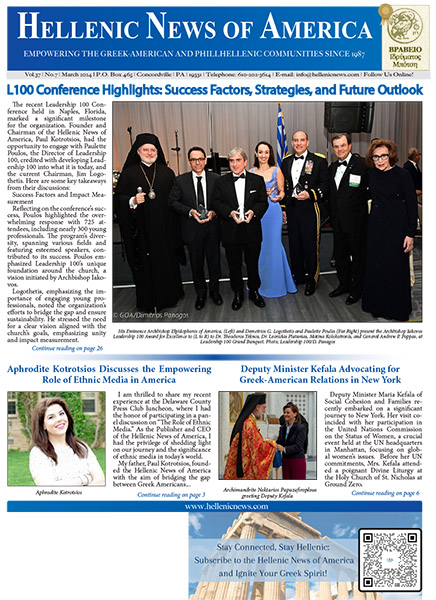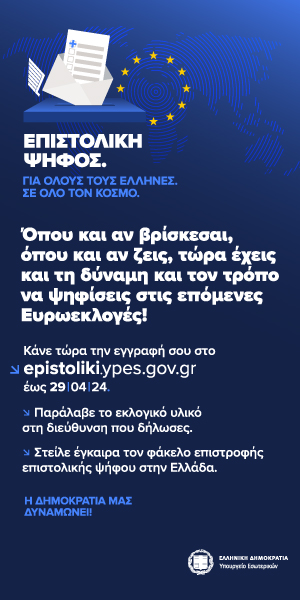In July 1994 I was a member of the House of Representatives and the leader of the Liberal Party. I had already served in the past as Minister of Foreign Affairs for 5 ½ years.
I was extremely frustrated with the disastrous stance of many politicians, who had not only done nothing constructive for Cyprus, but, on the contrary, they had let the country gradually sink into partition. They followed a policy of cheap rhetoric, of words without substance, of “patriotic” idiocy, nothing else.
So, on the 15th July 1994, the memorial day, 20 years after the greek coup d’ etat and the turkish invasion, I took the floor of the plenary session, after the other political leaders had addressed the assembly.
As the newspapers reported on the following day, I “almost blew up the session of the House”.
I referred to French poet and statesman Alphonse de Lamartine (1790-1869), who had said in 1848: “The more I observe the representatives of the people, the more I admire my dogs”.
I also said: “Dear motherland, you have heard, until today, so many empty words which have nothing to do with the truth, that you wonder, based on your long experience and your instinct which you have acquired through the centuries in this remote part of the Mediterranean, how you will ever manage to rid yourself of the bloody turkish occupation and its consequences. You have heard hundreds of times, dear motherland, that many people are in the forefront of the struggle, fighting for you, but eventually you realise with a bitter smile on your lips, that for most of them, the struggle is for a more comfortable life and for personal wealth, in other words the struggle is about money and not about virtue”.
A pandemonium followed. Two members of the House, Efstathios Efstathiou and Rena Katselli walked out of the assembly in protest. Some others were shouting. Some of the members congratulated me.
Twenty two years have elapsed since then, and I was proven absolutely correct in my assessment. Unfortunately, however, the very same “empty” struggle goes on. The approval of politicians in recent polls by the citizens of this country has plummeted to 7%. However, instead of the politicians coming to their senses, they have added a new dimension to their demeanour: Whenever there is even a tiny spark of hope, a possibility for a solution, some politicians immediately demonise every move and every word spoken and they try to destroy the process. They also attack repeatedly Mustafa Akinci, as if the Turkish Cypriot leader should negotiate on the basis of our positions and not on the Turkish Cypriot stand.
Cyprus is under occupation for 42 years. She is also faced with a severe political problem for a total of 53 years. Those who are under the age of 70 do not even know or remember the blunders of the two communities in the 1960’s. They do not remember our stupid attitude either. They cannot understand how we started off with a heroic – but not well planned – struggle in the 1950’s and we ended up with the predicament of partition in 2016. They do not even know that the interest of the international community in Cyprus is rather rare. The lights of the streetcar which carries the solution appear every 5-6 years. Actually, in the 42 years which followed the invasion, the streetcar paid a visit 8 times: 1978 (Anglo-American-Canadian Plan), 1983 (Indicators), 1985 (Consolidated Documents), 1992 (Set of Ideas), 1996 (Troutbeck-Glion), 2002 (Annan Plan), 2008 (Christofias-Talat), 2015 (Anastasiades-Akinci). Unfortunately we did not capitalise on most of the above initiatives. The projectors and the lights were there for a short while and then the freezing silence of an even deeper partition ensued…
There is a small bus-stop bench, near the edge of the cliff, on a solitary road of the northwest Troodos range, between Pyrgos and Pachyammos. The bench is always empty and lonely and whenever I pass from there I wonder when the next streetcar will light up the place and give life to the loneliness of the scenery. I do not know why, but this small bench reminds me of the problem of Cyprus. It reminds me of the 53 frozen years that have gone by. It reminds me of the streetcar of desire which turns up so rarely.
The talks of Anastasiades and Akinci constitute the eighth effort in 42 years. The two leaders reflect a ray of hope. They both seek a solution under conditions which have become much more awkward than in the past. As time went by, the following faits-accomplis were solidified, which make progress difficult to achieve.
- The “distance” between the two communities is now greater than ever before.
- The occupation has interfered with life, as it used to be, in Cyprus.
- The reciprocal trust is now weak. A recent Cyprus University poll shows that the confidence of Turkish Cypriots in Greek Cypriots is only 10%.
- There are hundreds of thousands of Turkish settlers who were not there initially.
- There are thousands of Turks and Turkish Cypriots users of Greek properties, who did not exist initially.
- There are people in the second and third generation who will have to leave their residences.
- There is the fear of a new, unknown march of both communities into the unknown, after 53 years of living apart.
- There are very large turkish investments in the occupied area, which did not exist initially, which render the return of territory more intractable.
- There is a demand for a rotating presidency which did not exist initially.
- There is a demand for population and land ownership majority in each state, which did not exist initially.
- The return of Morphou is more difficult than in the past.
Most of the above did not exist at the initial stages. They came about gradually through the stance of those “great patriots” of ours who kept fighting and rejecting all possible solutions, which would have been much better than what may be achieved today.
Nicos Anastasiades and Mustafa Akinci are trying to work out the golden mean on the above subjects and on other subjects like the guarantees. Each one of them holds in his hand a list of “red lines”, which cross each other.
Nicos, a friend of mine for the past 35 years, combines a deep love for Cyprus with the necessary sense of realism. Mustafa is also a friend from the past. I met him recently at a quiet dinner. We talked a lot. It is clear that the Turkish Cypriot leader has a strong desire to achieve a solution. Akinci believes that Anastasiades is very much for a solution too. The fact however remains that the problems which have piled up do not help at all. The “red lines” are all over the process.
But a common denominator has to be found. The solution is a “must”. Otherwise a permanent partition and a state of instability, adventure and danger will characterise the future of Cyprus.
Our own “streetcar” is not simply a social drama, like the masterpiece of Tennessee Williams. It is the drama of a people who have lost their way. It is the lonely bus bench which is waiting for the desired streetcar, which will free and reunite this country. It is something which must happe
Τον Ιούλιο του 1994 ήμουν μέλος της Βουλής των Αντιπροσώπων και ηγέτης του κόμματος των Φιλελευθέρων. Είχα ήδη διατελέσει Υπουργός Εξωτερικών στο παρελθόν για 5 ½ χρόνια.
Ήμουν πολύ απογοητευμένος με την καταστροφική στάση πολλών πολιτικών, που όχι μόνο δεν έκαναν τίποτα το εποικοδομητικό για την Κύπρο αλλά, αντίθετα, άφηναν την χώρα να βυθίζεται σταδιακά στη διχοτόμηση. Μόνο λόγια, χωρίς περιεχόμενο, χωρίς ουσία, μια πολιτική πατριωτικής μωρίας, τίποτα άλλο.
Έτσι στις 15 Ιουλίου 1994, ημέρα μνήμης, 20 χρόνια μετά το ελληνικό πραξικόπημα και την τουρκική εισβολή, ανέβηκα στο βήμα της Βουλής, μετά από τους άλλους πολιτικούς ηγέτες και, όπως έγραψαν οι εφημερίδες την επόμενη ημέρα, «λίγο έλειψε να ανατινάξω στον αέρα τη συνεδρία».
Αναφέρθηκα στην αξιοπιστία πολλών πολιτικών και μνημόνευσα τον Γάλλο ποιητή και πολιτευτή Λαμαρτίνο (Alphonse de Lamartine 1790-1869) ο οποίος είχε πει το 1848: «Όσο περισσότερο βλέπω τους αντιπροσώπους του λαού, τόσο περισσότερο θαυμάζω τους σκύλους μου».
Είπα επίσης: «Έχεις ακούσει μέχρι σήμερα, πατρίδα, τόσες πολλές ρηχότητες και τόσες λίγες αλήθειες, που διερωτάσαι, με την μακρά σου πείρα και το αισθητήριο που απέκτησες μέσα από τους αιώνες σε αυτό το μακρινό σημείο της Μεσογείου, πώς θα απαλλαγείς από τη ματοβαμμένη τουρκική κατοχή και από τις συνέπειες της… Πληροφορήθηκες εκατοντάδες φορές, πατρίδα, πως πολλοί ευρίσκονται επί των επάλξεων και αγωνίζονται για σένα, και όμως με πικραμένο χαμόγελο διαπιστώνεις πάντα, πως ο αγώνας για τους περισσότερους ήταν περί ευμάρειας, άνεσης και πλουτισμού, δηλαδή αγώνας ουχί περί αρετής αλλά περί χρημάτων».
Ακολούθησε πανδαιμόνιο. Δυό βουλευτές, ο Ευστάθιος Ευσταθίου και η Ρήνα Κατσελλή, απεχώρησαν από την ολομέλεια διαμαρτυρόμενοι. Άλλοι φώναζαν…. Άλλοι με συνεχάρησαν.
Πέρασαν άλλα 22 χρόνια από τότε και απεδείχθη κατά τρόπο απόλυτο πόσο σωστά ήταν αυτά που είχα πει. Δυστυχώς όμως ο ίδιος ρηχός αγώνας συνεχίζεται. Η αποδοχή των πολιτικών από τους πολίτες έχει κατρακυλήσει στο 7%, σύμφωνα με πρόσφατες δημοσκοπήσεις και όμως αντί οι πολιτικοί να συνέλθουν, έχουν προσθέσει και μια νέα διάσταση: Μόλις διαφανεί μια κάποια πιθανότητα λύσης, ξεσηκώνονται αμέσως αρκετοί πολιτικοί και αρπάζονται από κάθε κίνηση, κάθε φράση, κάθε υπαινιγμό και προσπαθούν να δαιμονοποιήσουν τα πάντα και να αποτρέψουν τις εξελίξεις. Επιτίθενται επίσης συνεχώς στον Μουσταφά Ακιντζί, ως εάν ο τουρκοκύπριος ηγέτης θα έπρεπε να διαπραγματεύεται με βάση τις δικές μας θέσεις και όχι τις δικές του.
Στην Κύπρο υπάρχει κατοχή για 42 χρόνια και σοβαρό πολιτικό πρόβλημα για ένα σύνολο 53 χρόνων. Όσοι είναι ηλικίας κάτω των 70 χρόνων δεν γνωρίζουν ή δεν θυμούνται τα λάθη και των δυο κοινοτήτων της δεκαετίας του 1960. Ούτε τις δικές μας βλακείες θυμούνται. Δεν θυμούνται ακόμα πως και γιατί από ένα ηρωικό, αλλά απρογραμμάτιστο, αγώνα της δεκαετίας του 1950 καταντήσαμε μια διχοτομημένη χώρα το 2016. Δεν γνωρίζουν επίσης πως ούτε η διεθνής κοινότητα μας θυμάται συχνά. Από τον σταθμό μας περνά το φωτισμένο λεωφορείο-πόθος της λύσης κάθε 5-6 χρόνια. Μετά την εισβολή, σε 42 χρόνια πέρασε οκτώ φορές: 1978 (Αγγλο-Αμερικανο-Καναδικό Σχέδιο), 1983 (Δείκτες), 1985 (Ενοποιημένα έγγραφα), 1992 (Δέσμη Ιδεών), 1996 (Τράουτπεκ-Γκλιόν), 2002 (Σχέδιο Αναν), 2008 (Χριστόφιας- Ταλάτ), 2015 (Αναστασιάδης-Ακιντζί). Σχεδόν καμιά πρωτοβουλία δεν αξιοποιήσαμε σωστά. Κάθε φορά έρχονται και φεύγουν οι προβολείς και τα φώτα. Ακολουθεί σιγή και η παγωνιά της βαθύτερης διχοτόμησης.
Υπάρχει ένα ξεχασμένο παγκάκι, στάση λεωφορείου, κάπου στην άκρη του κρημνού σε ένα μοναχικό δρόμο στη βορειοδυτική άκρη του δάσους του Τροόδους, μεταξύ Πύργου και Παχύαμμου. Το παγκάκι είναι πάντα έρημο και διερωτώμαι, όποτε περάσω από εκεί, ποιο λεωφορείο θα φωτίσει την ερημιά του. Δεν ξέρω γιατί το ερημωμένο αυτό παγκάκι-σταθμός μου θυμίζει το πρόβλημα της Κύπρου. Μου θυμίζει τα 53 παγωμένα χρόνια που διάβηκαν. Μου θυμίζει το λεωφορείο-πόθος που τόσο σπάνια περνά.
Οι συνομιλίες Αναστασιάδη-Ακιντζί αποτελούν την όγδοη προσπάθεια σε 42 χρόνια. Οι δύο ηγέτες αντανακλούν την αχτίδα της ελπίδας. Θέλουν και οι δύο τη λύση, δυστυχώς μέσα σε συνθήκες που έχουν καταντήσει πολύ πιο δύσκολες από το παρελθόν. Με την πάροδο του χρόνου συνέβησαν τα ακόλουθα τετελεσμένα που δεν υπήρχαν αρχικά και που τώρα επιβαρύνουν την προσπάθεια για λύση:
- Η «απόσταση» μεταξύ των δυο κοινοτήτων έχει μεγαλώσει.
- Η κατοχή έχει αλλοιώσει την παλιά ζωή της Κύπρου.
- Η αμοιβαία εμπιστοσύνη έχει αποδυναμωθεί. Με βάση πρόσφατη ελληνοκυπριακή πανεπιστημιακή δημοσκόπηση, μόνο το 10% των τουρκοκυπρίων μας εμπιστεύεται.
- Υπάρχουν εκατοντάδες χιλιάδες Τούρκοι έποικοι που δεν υπήρχαν αρχικά.
- Υπάρχουν χιλιάδες τούρκοι και τουρκοκύπριοι χρήστες ελληνοκυπριακών περιουσιών που δεν υπήρχαν αρχικά.
- Υπάρχουν δυο ή και τρεις γενιές ανθρώπων που πρέπει να μετακινηθούν.
- Υπάρχει ο φόβος για μια άγνωστη νέα πορεία και των δυο κοινοτήτων μετά από 53 χρόνια χωριστής διαβίωσης.
- Υπάρχουν πολύ μεγάλες τουρκικές επενδύσεις στην κατεχόμενη περιοχή, που δεν υπήρχαν αρχικά, που δυσχεραίνουν την επιστροφή εδαφών.
- Απαιτείται εκ περιτροπής προεδρία που δεν υπήρχε αρχικά.
- Απαιτείται πλειοψηφία πληθυσμών και περιουσιών στη κάθε πολιτεία, που δεν υπήρχε αρχικά.
- Υπάρχει δυσκολία για την επιστροφή της Μόρφου, που δεν υπήρχε αρχικά.
Τα περισσότερα από τα πιο πάνω δεν υπήρχαν στα αρχικά στάδια. Τα έφεραν σταδιακά, οι αρνητές, οι «μεγάλοι πατριώτες», που απέρριπταν τη μια πρωτοβουλία πίσω από την άλλη και ματαίωσαν λύσεις, που θα ήταν πολύ καλύτερες από τις σημερινές δυνατότητες.
Νίκος Αναστασιάδης και Μουσταφά Ακιντζί προσπαθούν να βρουν τη χρυσή τομή, στα πιο πάνω θέματα, αλλά και σε άλλα, όπως οι εγγυήσεις, κρατώντας ο καθένας στο χέρι ένα κατάλογο με κόκκινες γραμμές που αλληλοδιασταυρώνονται.
Ο Νίκος, φίλος μου τα τελευταία 35 χρόνια, συνδυάζει βαθειά αγάπη για την Κύπρο με τον αναγκαίο ρεαλισμό. Ο Μουσταφά είναι επίσης φίλος από τα παλιά. Τον συνάντησα πρόσφατα, σε ένα ήσυχο δείπνο. Μιλήσαμε αρκετά. Είναι σαφές πως ο τουρκοκύπριος ηγέτης επιθυμεί έντονα να εξευρεθεί λύση. Το ίδιο πιστεύει για τον πρόεδρο Αναστασιάδη. Είναι γεγονός όμως πως τα προβλήματα που συσσωρεύτηκαν δεν βοηθούν.
Οι κόκκινες γραμμές έχουν αυξηθεί. Πρέπει όμως να βρεθεί η κοινή συνισταμένη. Η λύση αποτελεί αδήριτη ανάγκη. Αλλιώς η μόνιμη διχοτόμηση, η αστάθεια, η περιπέτεια και ο συνεχής κίνδυνος θα αποτελούν το μέλλον της Κύπρου.
Το δικό μας «Λεωφορείο-Πόθος» δεν είναι απλώς ένα κοινωνικό δράμα, όπως το αριστούργημα του Tennessee Williams. Είναι το δράμα ενός λαού, που έχασε το δρόμο του. Είναι το μοναχικό παγκάκι που περιμένει το «Λεωφορείο ο Πόθος» που θα φέρει σε αυτή τη χώρα την ελευθερία και την επανένωση. Και πρέπει να την φέρει.







